Industry veteran Tony Whitehorn has been part of the UK motor industry for over 30 years holding senior roles with Renault, Toyota and most recently as president and CEO of Hyundai in the UK.
Now an authoritative advisor, he has worked with both Chinese OEMs who want to tap the Chinese EV market and the UK dealers who want to deliver its potential.
In this, the first instalment of a senior executive interview for AM, Whitehorn explains the significant potential of quality Chinese EV brands, charts how they achieved such progress in such short time and how they will likely establish their own foothold in the UK market.
AM A recent carwow survey revealed that a third of franchise car dealers expect Chinese brands to secure 20% of the market by 2028. Another third say that it will be near 30% although many said price would be key. Are UK dealers correct in predicting Chinese new entrants are set to make a very strong debut in the UK market?
TW Yes, I wouldn’t want to predict the actual figures but they're absolutely right in thinking that they will become a force to be reckoned with and there are lots of reasons for that. Firstly, you have a lot of legacy automotive manufacturers in Europe and for them to move from an internal combustion engine to electric vehicle configuration is very costly and takes a long time. Whereas for the Chinese market, they've been doing electric vehicles longer. The Chinese car market accounts for nearly 60% of all electric vehicles that are sold in the world so they have a very strong domestic base already.
AM Is the fact that they control much of their supply chain in addition to significant government support a critical factor for their future export success?
TW Absolutely. Around 80% of all the electric supply chain elements is owned by Asian companies. Cobalt is a really good example with around 60% of cobalt produced in the Democratic Republic of Congo but a lot of that is owned fundamentally by Chinese companies.
What the Chinese have is their strength in their domestic EV market with its significant growth. Last year, circa 10 million electric vehicles were sold globally and over 5 million of those were sold into China. So already you can start to see that Chinese manufacturers therefore have a good solid domestic market. It is a little like Volkswagen and Toyota’s strength in their domestic market - the VW Group sell nearly 40% of all vehicles in the German market. Toyota takes around 46% of the Japanese market. So if you've got a very strong domestic marketplace then that gives you a platform to go to export. That's exactly what's going on in China with so many EV manufacturers coming to market.
AM A lot of European car manufacturers struck joint ventures with Chinese manufacturers. Will that give those European manufacturers an advantage due to having worked closely with a Chinese industrial partner?
TW Not necessarily. In fact, it's more the other way around. What has happened over the years is that these joint ventures were necessary to penetrate the Chinese market – which takes almost 30% of all vehicles sold worldwide, about 22 million vehicles are sold in China every year out of 68 million. To be honest, the Chinese have been very clever in terms of doing lots of joint ventures through which they have managed to secure a lot of technology, a lot of understanding gained from all the car manufacturers with which they have partnered.
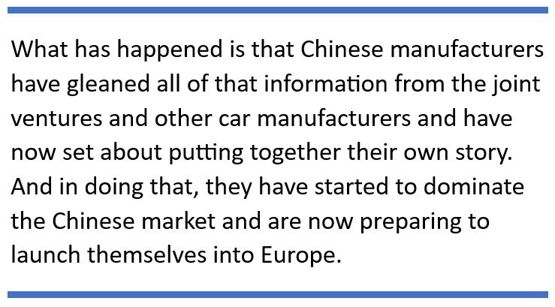 AM They would have known that they would have been expected to share their technology though?
AM They would have known that they would have been expected to share their technology though?
TW They did and that's life. It's mainly the state-owned companies that have done much of the joint venturing and the reason for that is that they realised that what they needed was different cars as the nation gained more wealth. They didn't want to have pure Chinese vehicles, they were attracted by the Toyotas, the Hondas, the Nissan's the JLRs, the BMWs and the Mercedes which were very attractive to them. In fact, some manufacturers would have agreements with more than one of state-owned manufacturer such as Toyota which had an agreement with FAW as well as with GAC.
Everyone started to realise that the Chinese were beginning to understand what makes a good car but the reality is that VW sells over 2 million vehicles in China each year which is their biggest market. What is interesting now is that in 2020, VW was number one with 13% of the market. In 2023, BYD are number one with 12% of the market with VW now coming in second.
In 2020, VW sold 2.6 million cars but that's falling. In 2021, they sold 2.1 million cars and last year, they sold sub 2 million vehicles. What has happened is that Chinese manufacturers have gleaned all of that information from the joint ventures and other car manufacturers and have now set about putting together their own story. And in doing that, they have started to dominate the Chinese market and are now preparing to launch themselves into Europe.
AM You’ve had significant experience growing brands like Toyota and Hyundai in the UK market. Do you think Chinese brands will chart a route to market very much like that pioneered by Korean brands in the 1990s?
TW What both Toyota and Hyundai had was a great product. Toyota came to market with a very reliable product at a time - the 80s and 90s - when reliability was really important. It was very accessible in terms of pricing. The Korean brand Hyundai was very similar. In 2002, they were the first car manufacturer in the UK to offer a five-year unlimited mileage warranty, thereby endorsing the idea of reliability and therefore quality and they were also highly accessible in terms of very good value for money.
Both of them came to market with those credentials. It's a little bit different with China however because with EVs people are brand agnostic. That is being shown in the likes of Hyundai and Kia being highly accepted in the EV market with the Ioniq 5 and the EV6 being compared very favorably with the likes of the BMWs and VWs of this world.
What you therefore have is people saying ‘I'm not so bothered about the brand, I'm more interested in the styling, in the technology, in the range’. And so people are becoming much more interested in the car than the badge on the front. That's why people are saying, ‘do I mind having an XPeng vehicle? It looks good, the range is good, the technology is fantastic and the infotainment system is brilliant. Do you know what? I'm very happy about driving one of those’.
Learn more about emerging Chinese car brands at Automotive Management Live 2023
The biggest holdup to this – range, charge time and infrastructure issues aside - is the cost. What you've got is Great Wall Motors Ora’s Funky Cat and you've got BYD with the Atto 3 coming to market at similar prices at £32,000- £37,000 mark.
That's relatively expensive because the sweet point is anywhere between £25,000-£30,000. MG, which is another Chinese brand, owned by SAIC have found exactly that. The reason why MG is so popular with its EV model range is because they offer sub-£30,000 vehicles. The Chinese do have the ability to be more accessible but the challenge with Chinese brands is they are very careful about coming in and being seen as cheap.
What I found with Hyundai is that if you enter the market and your credentials are good value for money, it becomes quite difficult to shake that perception off. You are seen as cheap and cheerful (pictured below, two decades apart: the cheap 2003 Hyundai Terracan and the more premium 2020 Santa Fe). At this moment in time what the Chinese brands are doing is coming in at a very good price. Don't get me wrong, the Atto 3 is very well specced for a C-segment SUV when you compare that with some medium-size SUVs with similar specification at £40,000-plus.
But they haven't come into the B-SUV segment or the B- or A- segment, when they could have, because they are worried about their brand credentials being seen as cheap and cheerful.
 AM Was Hyundai’s brand strategy flawed therefore when it first entered the UK market?
AM Was Hyundai’s brand strategy flawed therefore when it first entered the UK market?
TW I wouldn't have said it was a weakness. It just so happened to be that's where Hyundai was at that stage. That's what they were producing worldwide: very good quality, very reliable and very accessible vehicles although it did take a long time to build the brand as a result.
AM How are Chinese car brands going to ensure they hit the sweet spot in terms of price in the UK market without damaging their future brand proposition by being seen as too cheap.
TW What I think will happen is that they will come in at a reasonable price - not a cheap price – but they have all the wherewithal because of their economies of scale. Take BYD for example which is essentially a battery manufacturer. They own the supply chain. This year they will be bigger by a significant amount than Tesla. They will outsell Tesla by around 20%. In the UK, what they are trying to do is come in at a reasonable price and trying to get a foothold in the market. Essentially, they have sublime economies of scale and could almost charge whatever price they like by virtue of those economies and their ownership of the supply chain.



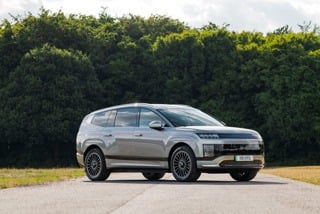
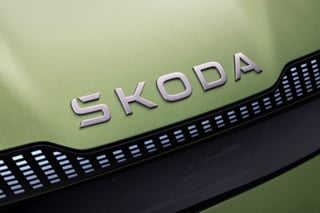
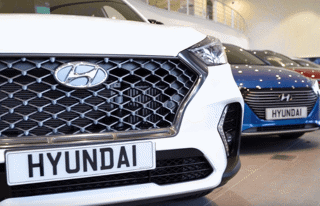
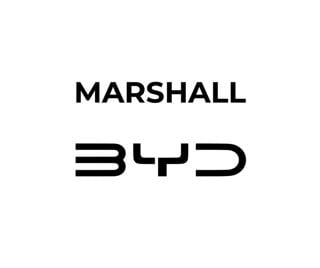
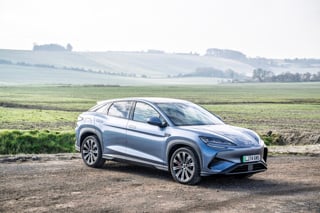












Login to comment
Comments
No comments have been made yet.